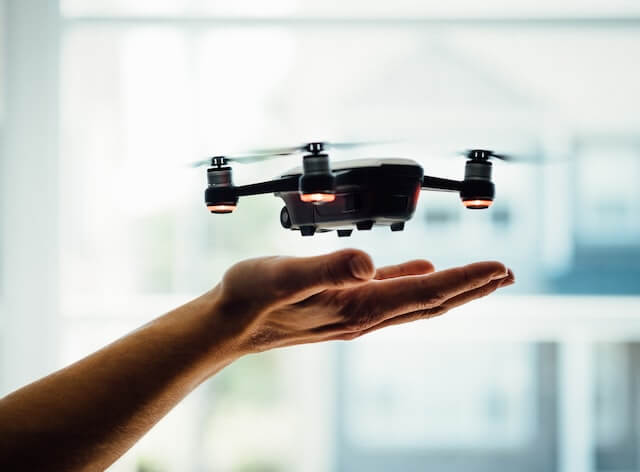We may earn money or products from the companies mentioned in this post.
The Ethics and Implications of Emerging the Technologies
From time immemorial, men have always looked for ways to make things easier on themselves. Reducing stress and labor can allow for more productivity, time, and energy to do other things. Freeing these up for more can be a great motivator for advancement. This drive to make things easier and more effective has led to the designs of some of the amazing machines we use today.
You may have have thought these technologies would be received into society without reservations but the opposite has been the case. While laws and regulations are there to protect and direct humans, how do we regulate something like Artificial Intelligence? Humans can reason and make decisions from experience and judgement but what about an AI that only responds to it’s programing? Nature has given human beings a complex and efficient way of making decisions that will take artificial intelligence some time to catch up to. There are many discussion and advances to be made in the future of emerging technologies.
Autonomous Vehicle and Drones: A Case Study
Autonomous vehicle
On March 18, 2018, Elaine Herzberg was killed while Uber tested its self-driving car in Arizona. The vehicle failed to classify Herzberg who was Riding her bike as a person to avoid so she died. While Uber resumed her test on major Roads nine months later and was cleared of all charges, the safety driver of the car, Vasquez is still facing charges of Vehicular Manslaughter. Thus, technologies though autonomous still need the involvement of humans for safe operations. Every Good thing has another side. So, we briefly study and list the good and the bad effects of self-driving cars.
Pros
- Statistically less errored decision making compared to a human.
- It will provide physically challenged individuals the opportunity to be independent and not rely on another driver.
- Self-driving cars possess a 360-degree viewing angle which is an advantage over a human whose vision coverage is 180-degrees. This way, self-driving cars can check every angle before making a turn or parking.
Cons
- There is the issue of trust and accountability.
- It is not yet a fully developed technology and needs more maturity
- It is more vulnerable to cyber-attacks. The added computer systems onboard create more surface area for hackers to get into.
- A driver will get too comfortable and not pay attention in the case they could have taken control and prevented an accident.
Drones
A drone is also known as an unmanned vehicle. It uses a remote control just like many of the toys we used while growing up. The only major differences between our toys and a working drone is the fact that Drones are fitted with a special type of camera which makes them able to take pictures and videos at a very high altitude and can fly. Some types of drones can be used in drawing out the 3-D map of a city.
While drones have many amazing benefits such as;
- Drones can be used in maintaining agriculture
- May be helpful for cloud seeding
- Drones can help us to create 3-D maps
- Drones can be navigated with the help of GPS

- Can help us to create amazing pictures
- Drones are a fun hobby for many people
- Drones can help with food delivery after natural disasters
- Drones can also assist us with various tasks that could be potentially dangerous for human workers.
Yet, there are still concerns about this too which are;
- Flying drones needs some practice.
- Potential insurance problems.
- Drones may not be allowed in certain areas.
- Drones can be used in dangerous ways.
- They can be used as an invasion of privacy.
- While drones are an good substitute small for aircraft in certain situations, they cannot carry too much weight.
AI and Aligning with Humanity
While these advances in drone and vehicle technology are groundbreaking there is the question of ethics with these new technologies
and artificial intelligence.
Ethics is defined as the standards that govern the conduct of a person, especially a member of a profession. It is the principle relating to right and wrong conduct. So how do we apply that to technology when its always been targeted at humans? Simple, we design things to align with human morals.
The Law
To assimilate technology like Artificial intelligence into society, there is a problem that needs to be dealt with. Since AI is not controlled by a human, the law will need to adapt. The current laws we have are designed for humans, a being with a frontal lobe and who has the freedom of choice. If a human decides to do good, he will be rewarded, if they does otherwise, he will be punished and the behavior can be changed or avoided. The problem with this Artificial Intelligence is that, if they malfunction, as machines do, who should be held responsible? How can we prevent this? Hence, there is concern about the significant changes that will happen to the law and society when artificial intelligence becomes more used and mainstream in society.
Hacking and Some Examples
Hackers are always a concern with newer technology. To bring forth an example, we mention an issue with the Mitsubishi Outlander as reported by BBC. The Mitsubishi outlander is a hybrid car with an alarm that can be turned off through security vulnerabilities on its wireless network card. The report revealed that the car was stolen and this is was made possible by abusing the vulnerability on the wireless card. No one heard the alarm go off so they were able to proceed unnoticed.
Have you hear about the attack on a Tesla Model 3 in 2019? Amat Cama and Richard Zhu, who were white hat hackers, over-ride the car’s system and take control of the vehicle in a controlled environment, that sounds crazy right?. Basically, what white hat hackers do is to use their skills to reveal the vulnerabilities in software and hardware for the good guys to find vulnerabilities that can be patched up. Within minutes, Cama and Zhu had taken control of the Tesla, by using their own line of code, run it on the car’s infotainment system, which was its weakest point. You can watch the entire demonstration on YouTube.
The Issue of Trust
The public will struggle to accept the use of something like artificial intelligence or self-driving cars. I mean my grandma still struggles to use the washing machine. She believes in the orthodox means of washing clothes. Now, imagine she has to sit behind a wheel without her beloved son driving and engaging in those heart-to-heart discussions she is used to, she will most likely not adapt to it very easily. I believe this is the same for others too who have their entire lives been used to driving or being driven by human beings. The same is true of drones, would I trust my valuable packages to be delivered by an unmanned aerial vehicle? I mean some people still struggle with transporting through an airplane.
Conclusion
Advancement in technology has always been met with many challenges from society because, without a doubt, the introduction of anything new will require a lot of change from humanity. What about the millions who will no longer be needed in their place of work because a machine has replaced them? They will have to re-tool and re-skill to fit into the new world. There is also the older crowd who will have to re-adjust there way of life or perspective. Some just don’t like change or fear the new and how will affect them. There is also the moral dilemma of giving up control to a machine in situations that could risk human life or the environment around them. These are all issues humanity must address going forward. Let’s hope we can get it right for the benefit of the future generations to come.
You Might Also Like – Assistive Technology


